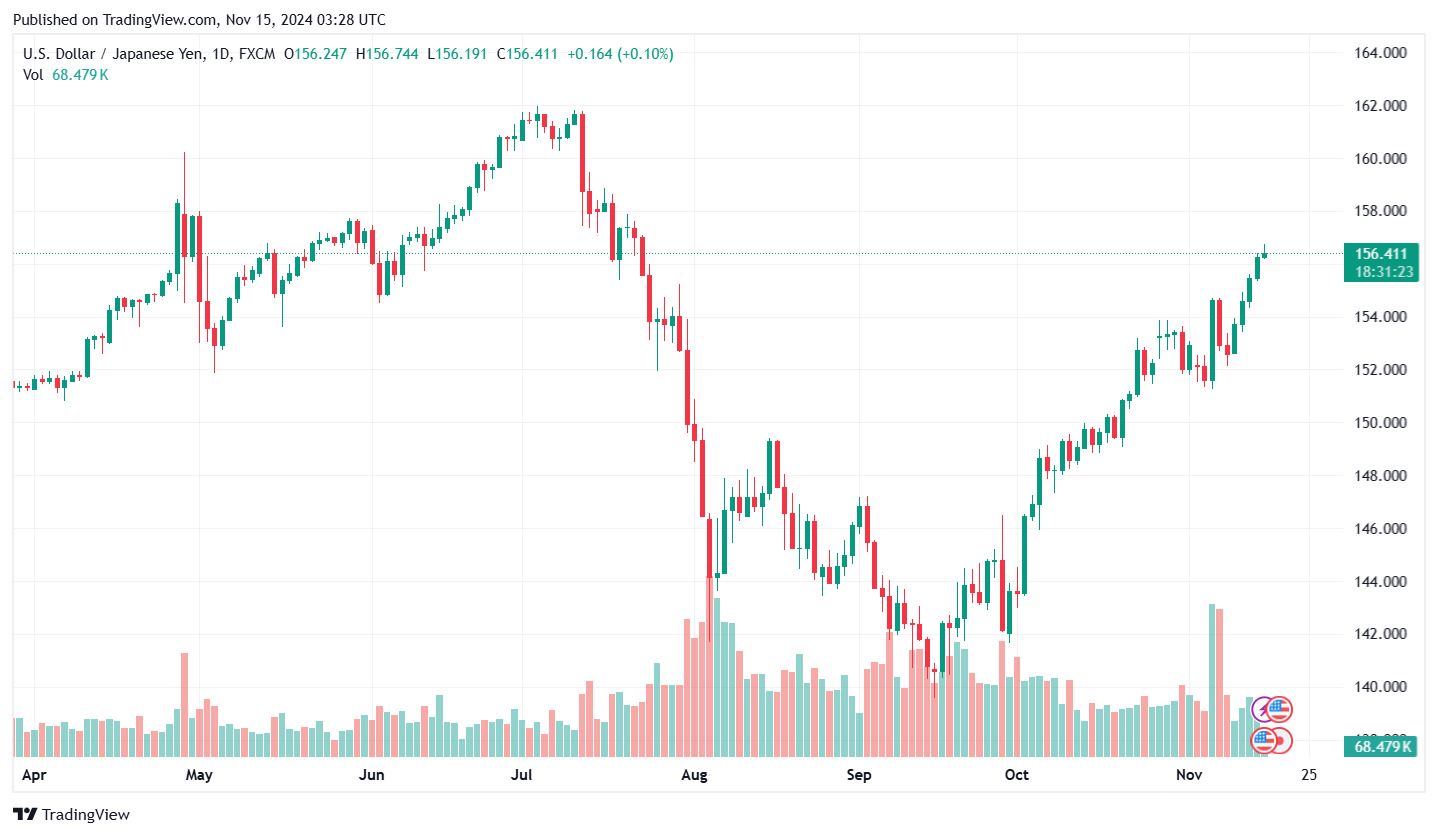According to Nikkei Asia, on November 15, the Japanese Yen fell below 156 Yen against the USD (US Dollar), as many investors thought that Japan would not intervene in the market to support the Yen in the near future. Although the Japanese government has repeatedly warned about the rapid decline of the Yen, this has not been enough to prevent the Yen from being sold off.
The yen is now at its lowest level since July 23 and down about 3% from before the US presidential election. From its peak in mid-September, the yen has fallen more than 10%.

The main reason is the widening interest rate differential between Japan and the US. The US 10-year bond yield has just risen to its highest level since July, despite recent inflation of 2.6%, in line with forecasts. Investors are concerned that President-elect Donald Trump's economic policies could add to the US debt, leading to higher interest rates and a stronger US dollar.
The Republican majority in the US House of Representatives and Senate also raises concerns that US spending policy will lack long-term fiscal discipline.
Besides, hedge funds and traders also actively sold the Yen because they do not think the Japanese government will take action to support this currency in the current context.
Japan’s top currency official, Atsushi Mimura, has repeatedly warned that the government will take action if the yen becomes too volatile. However, buying yen could conflict with the incoming Trump administration’s policy of favoring a strong dollar. Trump’s economic adviser, Scott Bessent, has said that “if there is good economic policy, the dollar will strengthen.”
The weaker yen boosted shares of Japan’s major exporters on hopes of higher earnings. Industrial robot maker Fanuc rose 4 percent, while Kubota rose 7 percent, while Toyota and Mazda both rose 3 to 4 percent.
Meanwhile, the Nikkei stock index fell 0.5% as many investors took profits.





